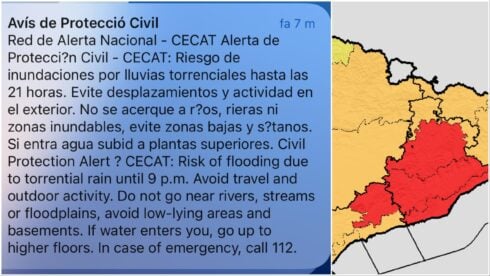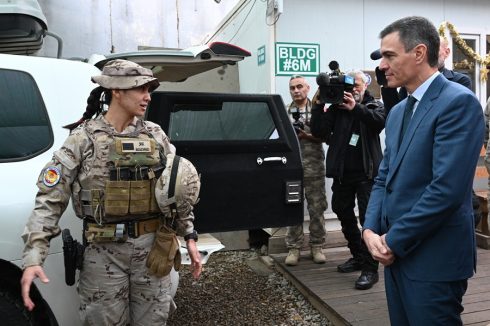CHARITY begins at home’ or so the saying goes, but when home is abroad getting the right help can be confusing and it’s hard to know where to turn.
With a possible language barrier, new systems to understand, and a recession in full swing, it is even more harrowing if you fall ill or try to cope with the loss of a loved one.
But there are many charities here to help expatriates, particularly the elderly, deal with problems so they don’t need to suffer in silence.
In fact, the truth is there is far more help at hand for Britons in need of support from charities than they most probably dare to think.
One such example is Christian charity, Lux Mundi Ecumenical, in Fuengirola.
Created to heal the divisions among Christian denominations after the Franco era, it has cared for the coast’s needy for the best part of 40 years.
Tucked away on a Fuengirola backstreet, the centre – one of two, the other is in Torre del Mar – is tardis-like. Despite looking small from the outside, it opens up into a veritable maze with rooms catering for all needs.
Inside there is a friendly atmosphere with a dedicated group of volunteers serving coffee and volunteers selling bric-a-brac from the lively market held on Thursday.
Volunteer Bob Baxe runs computer training and there are Spanish lessons and weekly masses for all in the chapel. Wheelchairs can be hired by deposit for daily/weekly rental. The nearly new clothes shop next door also raises money to run the building.
“We also run alcoholics anonymous with the nuns providing round the clock counselling and, most importantly, we advise people on how and where to get help.”
Tireless general manager, Gloria Uribe Cifuentes, 51, has worked there for 16 years.
“About 70 per cent of the people we deal with are elderly,” Cifuentes explains.
“But we also run alcoholics anonymous with the nuns providing round the clock counselling and, most importantly, we advise people on how and where to get help.
“Many foreigners either don’t know about or can’t understand Spanish social security, let alone know how to access the help they need from charities.”
But the recession has hit the charity hard with more demand for services and fewer donations.
“It has been a desperate couple of years,” continues Cifuentes. “The worst I’ve known in my 16 years here.”
And falling funds, but an ever increasing need for charitable services, has sadly been a familiar theme for aid organisations across the coast.
In particular, Age Concern in Estepona y Manilva, has endured similar difficulties over recent years.
Organisation spokesman Tony Aldous explains: “The last 18 months have been extremely tough because we are dependent on donations. The fact is people are giving less.”
Yet, despite recent struggles, the group still has a team of around 60 volunteers performing tasks such as visiting the lonely or accompanying the infirm to hospital.
But by far the most common problems are those concerning the Spanish system and language difficulties.
“Spain has a very different system to the UK and it can be very confusing to navigate when you need it, so people look to us for help,” continues Aldous.
“We also do more complicated jobs such as repatriating people who want to move back to the UK which requires a lot of time and effort.”
Charles Betty, president of charity Age Care Association (ACA), has also noticed an increase in the amount of people heading back to the UK.
“With the pound and euro at virtual parity and the Spanish economy suffering, more people are going back to Britain for help,” he explains.
But, despite the tough times, there is a range of help still available here in Andalucia. ACA alone has three drop-in centres in Torremolinos, Fuengirola and Calahonda.
With 50 volunteers, half of whom working in the Calahonda charity shop, they can be contacted on any issue.
And, when the centres are closed, Betty and vice-president, Maurice Featherman, run a 24-hour helpline and all nine chief carers, based on the coast, can be called on their mobile phones.
“We are very easily contactable and have a quick response rate,” continues Betty.
“And we’re not just based on the coast – we have started to focus more on expatriates in the campo who can often feel neglected. We are increasingly working in places like Antequera.”
Trained social service workers and nurses offer free, professional care and advice to concerned expatriates.
If you can’t make it to a centre then home support visits are also available, ranging from shopping deliveries to just popping round for a cup of tea.
No doubt about it, at first glance, trying to get hold of relevant charity services overseas can appear daunting.
But the truth is, when bad times do arrive, they don’t need to be compounded by living abroad.
Andalucia has many friendly faces ready to help expatriates navigate through what initially appears to be the minefield of Spain’s systems and language.
Click here to read more News from The Olive Press.





